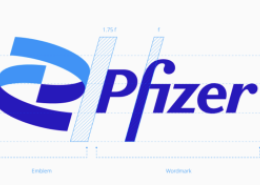Pfizer Nutrition Data Demonstrate that Appropriate Early Child Nutrition May Be Linked to Long-Term Health Outcomes in At-Risk Populations and Picky Eaters
Data Demonstrate that Appropriate Feeding Practices that Support the Growth and Development of Nutritional-Challenged Children are Key Factors for Long-Term Health Outcomes
(BUSINESS WIRE)--Results from studies presented by Pfizer Nutrition at the 5th Europaediatrics Congress in Vienna provide further evidence that appropriate feeding practices are critical to support the healthy growth and development of at-risk infants and picky eaters facing nutritional challenges. Data from two studies presented at the Congress demonstrate that many infants and children face nutritional challenges, including those who are preterm and low-birthweight, as well as children who are picky eaters.
Nutrition during the first years of life is crucial for life-long health and wellness. The rate of growth of a child is an important indicator of overall health and reflects a child’s nutritional well-being. Appropriate rate of weight gain in infancy and childhood may lead to more positive weight outcomes later in life.1,2
“The right balance and amount of nutrients a child receives early in life is critical to achieving optimal growth, development and gastrointestinal health - paving the way for a healthy future,” said John Troup, PhD, vice president, Global Research & Development, Pfizer Nutrition.
In the first of two summaries of the study population, results found that specialized nutrition may be indicated for preterm, low-birthweight Chinese infants to appropriately promote catch-up growth in the weeks immediately following discharge from the hospital.3 The goal of this study was to gather further insights and data into the growth of this population, to help guide nutritional management.4 In this study involving 100 infants in China who were preterm and low-birthweight, findings showed that after hospital discharge most infants achieved catch-up growth by 1 month corrected age. Following hospital discharge, specialized nutrition may be indicated for a short duration. Appropriate nutritional management of preterm and low-birthweight infants is critical to prevent potential adverse long-term health consequences.
The second study summary of the same population of preterm, low-birth weight Chinese infants aimed to define the current growth and feeding practices of this group. There are multiple variables that can contribute to infant growth velocity, including gender, feeding type and feeding volume. Study data suggest that high-nutrient density feedings after hospital discharge may contribute to higher weight gain velocity in some preterm, low-birthweight infants. These findings reinforce the importance of making appropriate feeding decisions specific to each individual infant, and of ensuring that nutritional intake is monitored and modified based on a preterm infant’s growth progress.5
Children who are picky eaters (PE) also may have inadequate nutrient intake and are more likely to be underweight at early school age as compared to non-PE children. PE children typically skip meals, consume a limited number of foods, do not have interest in food, eat slowly and eat little. A study examined the effects of standardized nutrition counseling with and without the consumption of growing-up milk on growth and nutrient adequacy of children who are picky eaters. Data showed that consumption of growing-up milk in conjunction with nutrition counseling promoted better growth and nutrient intake than nutrition counseling alone in PE children. In addition, growing-up milk was found to be well-tolerated and accepted by study participants.6
About the Pfizer-Sponsored Studies
The preterm infant trial was a multicenter, prospective, observational study at three hospitals in China. Infants who were born at or before 34 weeks gestation and were less than 2000g at birth were enrolled at the time of hospital discharge. Both summaries resulted from this trial.
The first summary of the preterm study, “New Evidence in the Growth of Chinese Preterm, Low-Birthweight Infants After Hospital Discharge,” evaluated anthropometrics (weight, length and head circumference) at hospital discharge, term (40 weeks), one and two months corrected age. The main outcome measure was weight gain velocity (WGV). Secondary outcomes included weight, length and head circumference-for-age Z-scores using a fetal-infant growth chart reference.7
In the second summary of the preterm study, “New Insight into Feeding Practices and Growth of Post-Discharge Preterm Infants in China,” anthropometry and feeding (formula and human milk) information was collected at hospital discharge, term (40 weeks), one and two months corrected age. Infants were stratified by WGV tertile; tertile 1 <37g/d, tertile 2 37-44g/d, tertile 3 >=44g/d; growth and feeding within each tertile was evaluated. Feeding data was collected using a 1-day feeding record prior to each study timepoint. Feedings were categorized by nutrient density: standard (640-690 kcal/L); moderate (700-770 kcal/L); and high (800-820 kcal/L).8
Another study, “Effects of Nutrition Counseling with and without Growing-up Milk on Growth and Nutrient Adequacy in Picky Eaters: a Randomized Controlled Trial,” was an in-market, multicenter, randomized controlled trial conducted in China (4 sites in Mainland China, and 1 site in Hong Kong). Chinese PE children 2.5-5 years old with weight-for-height <25th percentile were randomized to Control group to receive nutrition counseling alone or Study group to receive nutrition counseling plus recommended 2 servings/day of growing-up milk for 120 days. Of the 153 enrolled children, 131 completed the study. Subject demographics and baseline anthropometric data were comparable between the Study and Control groups.9
In this study, the Study group experienced significantly greater increases in z-scores for weight-for-height (primary growth outcome) and weight-for-age than the Control group. Additionally, the Study group experienced a significantly greater intake of total energy, protein, carbohydrate, key long-chain fatty acids (docosahexaenoic acid [DHA] and arachidonic acid [ARA]), and specific micronutrients (calcium, iron, zinc and vitamins A, D, E, C, B6) than the Control group at 120 days.10 Incidence of physician-reported GI events in this study was low and similar between the two treatment groups.11
About Pfizer Nutrition
Pfizer Nutrition, formerly Wyeth Nutrition, is part of Pfizer Inc. Pfizer Nutrition supports the company’s mission to improve health and well-being at every stage of life, bringing breadth and depth of consumer and scientific insight to new populations and new markets around the world. Pfizer Nutrition brings together almost a century of experience in which the company has leveraged clinical rigor, scientific research, world class manufacturing and product safety standards to drive scientifically sound solutions that offer parents confidence, help nourish children and support their healthy futures. We develop premium-quality nutritional products that are scientifically-designed to meet the needs of infants and young children, as well as pregnant and lactating mothers.
Pfizer Inc.: Working Together for a Healthier World™
At Pfizer (NYSE: PFE), we apply science and our global resources to improve health and well-being at every stage of life. We strive to set the standard for quality, safety and value in the discovery, development and manufacturing of medicines for people and animals. Our diversified global health care portfolio includes human and animal biologic and small molecule medicines and vaccines, as well as nutritional products and many of the world’s best-known consumer products. Every day, Pfizer colleagues work across developed and emerging markets to advance wellness, prevention, treatments and cures that challenge the most feared diseases of our time. Consistent with our responsibility as the world’s leading biopharmaceutical company, we also collaborate with health care providers, governments and local communities to support and expand access to reliable, affordable health care around the world. For more than 150 years, Pfizer has worked to make a difference for all who rely on us. To learn more about our commitments, please visit us at www.pfizer.com.
Breast milk is best for babies.Good maternal nutrition is important for preparation and maintenance of breast-feeding. Introducing partial bottle-feeding could negatively affect breast-feeding and reversing a decision not to breast-feed is difficult. Professional advice should be followed on infant feeding.Infant formula should be prepared and used as directed.Unnecessary or improper use of infant formula may present a health hazard. Social and financial implications should be considered when selecting a method of infant feeding.
REFERENCES
3 Kline, R, Chen, C, Zhu J, Wang D, Northington R. New Evidence in the Growth of Chinese Preterm, Low-Birthweight Infants After Hospital Discharge. Abstract PP241 presented at 5th Europaediatrics Congress, Vienna, AUS, June 23-26, 2011.
4 Kline, R, Chen, C, Zhu J, Wang D, Northington R. New Evidence in the Growth of Chinese Preterm, Low-Birthweight Infants After Hospital Discharge. Abstract PP241 presented at 5th Europaediatrics Congress, Vienna, AUS, June 23-26, 2011.
5 Kline, R, Chen, C, Zhu J, Wang D, Northington R, Trabulsi J. New Insight Into Feeding Practices and Growth of Post-Discharge Preterm Infants in China. Abstract PP242 presented at 5th Europaediatrics Congress, Vienna, AUS, June 23-26, 2011.
6 Yao MJ, Sheng XY, Tong ML, Zhao DM, Leung TF, Zhang F, Northington R, Hays N. Effects of Nutrition Counseling with and without Growing-up Milk on Growth and Nutrient Adequacy in Picky Eaters: a Randomized Controlled Trial. Abstract PP125 presented at 5th Europaediatrics Congress, Vienna, AUS, June 23-26, 2011.
7 Kline, R, Chen, C, Zhu J, Wang D, Northington R. New Evidence in the Growth of Chinese Preterm, Low-Birthweight Infants After Hospital Discharge. Abstract PP241 presented at 5th Europaediatrics Congress, Vienna, AUS, June 23-26, 2011.
8 Kline, R, Chen, C, Zhu J, Wang D, Northington R, Trabulsi J. New Insight Into Feeding Practices and Growth of Post-Discharge Preterm Infants in China. Abstract PP242 presented at 5th Europaediatrics Congress, Vienna, AUS, June 23-26, 2011.
9 Yao MJ, Sheng XY, Tong ML, Zhao DM, Leung TF, Zhang F, Northington R, Hays N. Effects of Nutrition Counseling with and without Growing-up Milk on Growth and Nutrient Adequacy in Picky Eaters: a Randomized Controlled Trial. Abstract PP125 presented at 5th Europaediatrics Congress, Vienna, AUS, June 23-26, 2011.
10 Yao MJ, Sheng XY, Tong ML, Zhao DM, Leung TF, Zhang F, Northington R, Hays N. Effects of Nutrition Counseling with and without Growing-up Milk on Growth and Nutrient Adequacy in Picky Eaters: a Randomized Controlled Trial. Abstract PP125 presented at 5th Europaediatrics Congress, Vienna, AUS, June 23-26, 2011.
11 Yao MJ, Sheng XY, Tong ML, Zhao DM, Leung TF, Zhang F, Northington R, Hays N. Effects of Nutrition Counseling with and without Growing-up Milk on Growth and Nutrient Adequacy in Picky Eaters: a Randomized Controlled Trial. Abstract PP125 presented at 5th Europaediatrics Congress, Vienna, AUS, June 23-26, 2011.








